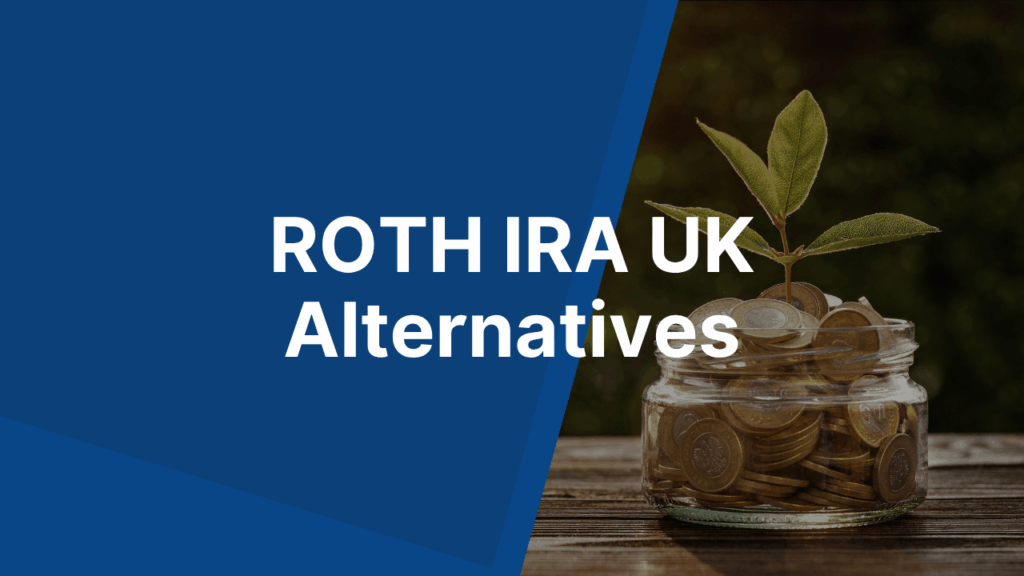What is a Roth IRA in the UK?
You cannot get A Roth IRA in the UK. A Roth IRA (Individual Retirement Account) in the United States allows individuals to contribute after-tax income, with the benefit of tax-free withdrawals in retirement. While the UK doesn’t have a direct one-to-one equivalent, it offers several tax-advantaged accounts that serve similar purposes. This guide will help you understand the closest UK options to a Roth IRA and how they function.
UK Roth IRA Equivalents
There is no perfect UK equivalent of a Roth IRA, but combining a Stocks and Shares ISA with a Lifetime ISA can provide both tax-free growth and withdrawals, mirroring many of a Roth IRA’s benefits. Pensions, while taxed differently, offer powerful long-term savings benefits with generous tax relief and employer matching.
Stocks and Shares ISA (Individual Savings Account)
A Stocks and Shares ISA is the closest UK equivalent to a Roth IRA. Like a Roth IRA, it is funded with after-tax income, meaning you don’t receive any tax relief when you contribute. However, any investment growth within the ISA is entirely free from both capital gains tax and income tax.
Additionally, withdrawals are completely tax-free and can be made at any time, for any reason, without penalty. There is a contribution limit of £20,000 per year (as of 2025), which applies across all types of ISAs.
The flexibility and tax-free nature of the ISA make it a powerful tool for medium- to long-term investing, particularly for those who want to maintain access to their money before retirement age.
Lifetime ISA (LISA)
A Lifetime ISA (LISA) shares many similarities with the Roth IRA’s retirement-focused benefits, but with a unique UK twist.
Available to individuals aged 18 to 39, the LISA allows you to save up to £4,000 per year, and the government adds a 25% bonus to your contributions—effectively giving you up to £1,000 of free money annually. Like the Stocks and Shares ISA, the LISA is funded with after-tax income and grows tax-free.
However, withdrawals are only tax- and penalty-free if they are used either for purchasing your first home (up to a property value of £450,000) or after age 60. Withdrawing for any other reason triggers a 25% penalty, which typically results in losing some of your original contribution.
For young savers looking to either buy their first home or supplement their retirement savings, the LISA is an excellent option.
Pensions (Workplace or Personal)
UK pensions, including workplace pensions and personal private pensions like SIPPs (Self-Invested Personal Pensions), also provide robust retirement savings opportunities, but they differ significantly from Roth IRAs in how they’re taxed.
Pension contributions typically receive tax relief, meaning they reduce your taxable income. Your investments then grow tax-free, and when you reach retirement age—currently 55, rising to 57 in 2028—you can withdraw up to 25% of your pension pot tax-free.
The remainder is taxed as income at your marginal rate. While pensions offer less flexibility than ISAs due to access restrictions, they’re often the most tax-efficient option for long-term retirement savings, especially when employer contributions are factored in.

Richard is the founder of the Good Money Guide (formerly Good Broker Guide), one of the original investment comparison sites established in 2015. With a career spanning two decades as a broker, he brings extensive expertise and knowledge to the financial landscape.
Having worked as a broker at Investors Intelligence and a multi-asset derivatives broker at MF Global (Man Financial), Richard has acquired substantial experience in the industry. His career began as a private client stockbroker at Walker Crips and Phillip Securities (now King and Shaxson), following internships on the NYMEX oil trading floor in New York and London IPE in 2001 and 2000.
Richard’s contributions and expertise have been recognized by respected publications such as The Sunday Times, BusinessInsider, Yahoo Finance, BusinessNews.org.uk, Master Investor, Wealth Briefing, iNews, and The FT, among many others.
Under Richard’s leadership, the Good Money Guide has evolved into a valuable destination for comprehensive information and expert guidance, specialising in trading, investment, and currency exchange. His commitment to delivering high-quality insights has solidified the Good Money Guide’s standing as a well-respected resource for both customers and industry colleagues.
To contact Richard, please ask a question in our financial discussion forum.




